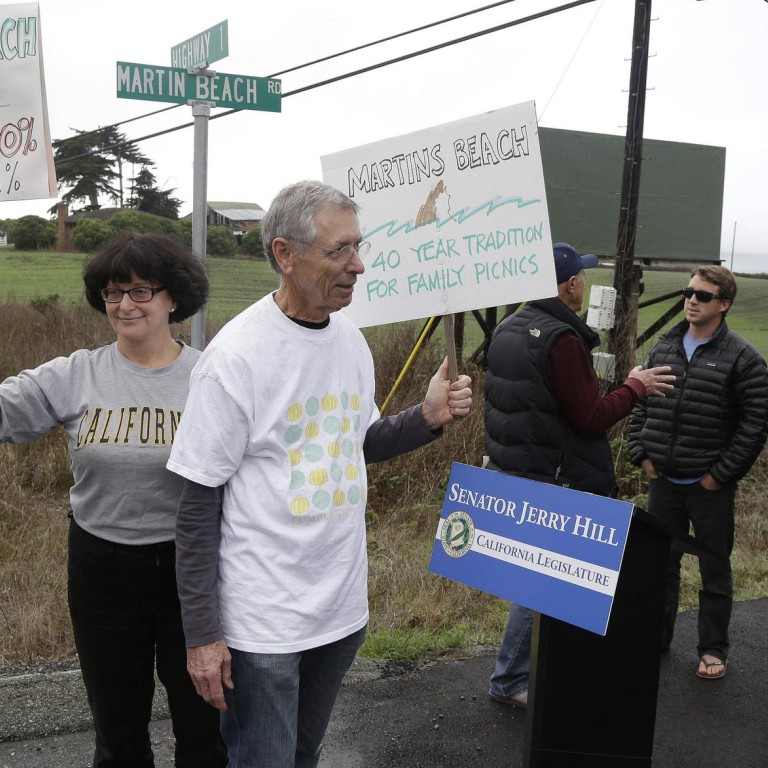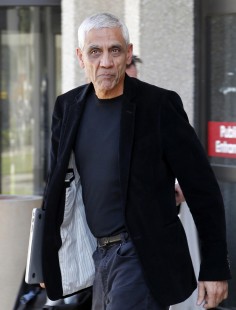
Billionaire battles surfers in court over access to northern California beach
Case hinges on whether locked gate on tycoon's California property is a form of development
Billionaire Vinod Khosla, the co-founder of Sun Microsystems, is making a last stand to block public access to a northern California beach on a 22 hectare plot he bought for US$32.5 million.
Khosla, who started his own venture capital firm a decade ago, is fighting a lawsuit brought in state court by the charity Surfrider Foundation, which describes its mission as "the protection and enjoyment of oceans, waves and beaches through a powerful activist network".
The surfers' group claims that by locking a gate on a beach access road about 53km south of San Francisco, Khosla is effectively engaged in beach development without the permit required by the California Coastal Act. Surfrider is seeking fines of as much as US$15,000 a day since October 2010, or about US$20 million to date.

"How do you force Mr Khosla to comply with the law?" Joseph Cotchett, a lawyer for Surfrider, asked the judge. "Somehow, somewhere justice has to rain down on this individual, Mr Khosla, and go to the Coastal Commission and unlock that gate," he said. Cotchett then invoked late US president Ronald Reagan's plea to Mikhail Gorbachev to tear down the Berlin Wall: "Take off that lock, Mr Khosla. If not, you're going to pay a fine."
Khosla argues he has a constitutional right to exclude the public from private property.
"Repainting a billboard or maintaining a fence or gate" that had been at the beach since the 1950s did not constitute development and were exempt from state permitting requirements, he said in a court filing.
"My client's property is not a state park," Jeffrey Essner, a lawyer for Khosla, told the judge.
"The threat of an activist organisation to impose tens of millions of dollars in fines" for protecting private property was "the type of blackmail and extortion that the US Supreme Court has found unconstitutional", Essner said.
Surfrider traces the roots of the controversy to 2008 when Khosla formed two entities, Martins Beach 1 and Martins Beach 2, to buy the property. Public access to the beach on Martins Road, which runs through the property, was gradually restricted and finally enforced by security guards hired last year, according to court documents filed by the organisation.
"We are representing the public and using our meagre funds to do so," Angela Howe, legal director at Surfrider, said in a phone interview.
Surfrider points to policies of the previous owner, the family of Richard Deeney, which charged cars a small fee for use of the beach road and let pedestrians pass for free, to argue Khosla has developed the beach area.
Khosla cites the same policies to contend it was not considered "development" when Deeney's family locked the gate during winter.
The California Coastal Commission told Khosla before the lawsuit was filed that he was required to get a permit to close off access to the beach, said Sarah Christie, a spokeswoman for the agency.
"The property owner has not submitted the application that we've been looking for," Christie said.
Khosla issued a statement blaming his adversaries for not reaching a compromise. "They've refused to collaborate and they've refused to negotiate," he said.
In the meantime, some beachgoers have ignored the gate without serious repercussions. Members of the public have been ticketed for trespassing, though San Mateo county district attorney Steve Wagstaffe said in an e-mail that violators would not be prosecuted - yet.
"The sheriff's office is not citing, and we are not prosecuting, any trespass cases until this case is resolved and the court rules on whether the access can be denied," Wagstaffe wrote.
